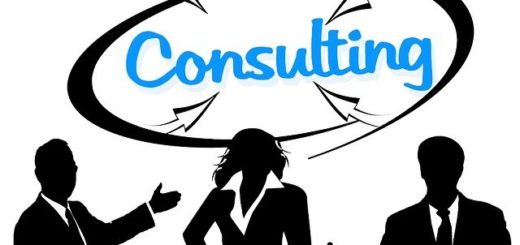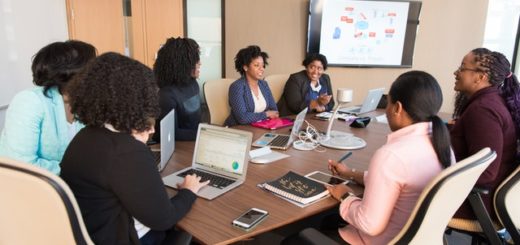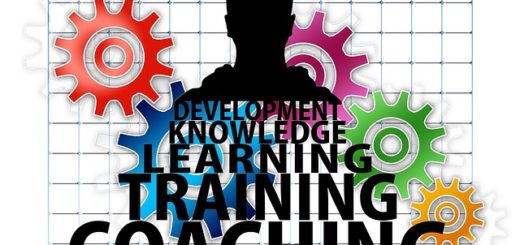Consultancy: Developing Mentorship Curriculum to Strengthen the Capacity of Organizations to Represent their Economic Interests of Women with and without Disabilities
Handicap International Federation in partnership with National Gender and Equality Commission
Programme Context
The Government of Kenya recognizes that sustainable development can only be achieved when deliberate measures are taken towards the inclusion and empowerment of women and girls with and without disability. Kenya has enacted several laws, policies and administrative guidelines aimed at promoting gender equality, inclusion of persons with disability and freedom from discrimination. Article 27 of the Constitution of Kenya, 2010 provides for equality and freedom from discrimination for all persons in the Kenya. Article 27(4) outlaws all forms of discrimination on any ground, including race, sex, pregnancy, marital status, health status, ethnic or social origin, color, age, disability, religion, conscience, belief, culture, dress, language or birth. Sessional Paper 2 of 2019 on National Policy on Gender and Development, 2019 seeks to put in place legislative and administrative measures to address existing gaps in the realization of gender equality and women’s empowerment.
In addition, Kenya has ratified several Regional and International instruments that require the State to develop gender and disability transformative programs and policies. Some of these are United National Convention on the Rights of Persons with Disabilities (UNCRPD), ratified by Kenya on 19th May 2008 and Convention on the Elimination of all forms of Discrimination Against Women (CEDAW), ratified by Kenya on 9th March 1984. Despite this women and persons with disability have continued to suffer violation of their economic, social and political rights in all sectors; normally a manifestation of deeply entrenched cultural & traditional beliefs and practices stemming from a patriarchal system that perpetuates unequal gender power relations promoting male dominance, and negative masculinities and attitudes towards people with disabilities. These are further compounded by existing gaps in the law, minimal enforcement of existing legislations, policies and frameworks by duty bearers and low capacity by the Special Interest Groups to demand for their constitutional rights. Without proper income, the negotiating power of these groups is low, hence limiting their uptake of leadership positions and involvement in decision making.
Studies show that women, youth and persons with disabilities remain underrepresented and undervalued in the business sector. Further, businesses owned by women, youth and persons with disability among other special interest groups often fail and do not thrive within the first year of establishment. Most business environments do not favor the employment, inclusion, growth and promotion of women, youth and persons with disabilities e.g. nursing rooms / crèches for nursing mothers, flexi hours, access, training and job opportunities. There is also disparities in pay, promotions and job security between women and men. This is largely founded on lack of skills, attitudes and ignorance, thus the need to build the capacity of business organizations, and oversight bodies such as trade unions and employers’ umbrella bodies (FKE, KAM, KEPSA). There is need to tackle cultural factors and local stakeholders’ misconceptions of women, youth and persons with disabilities role in the socio-economic sphere and demonstrate the benefit of inclusion in promoting equitable economic development and local governance.
According to the CRPD, the definition of disability results from the “interaction between persons with impairments and their environment (barriers) that hinder their full and effective participation in society on an equal basis with their peers without impairments.” These barriers include physical, institutional and attitudinal barriers and need to be addressed in the curriculum and training materials.
Explanation of the Reason for the Mission
In this regard, NGEC in collaboration with HI seeks to obtain the services of a consultant to develop a relevant mentorship curriculum and training materials to strengthen the capacity of business organizations, chambers of commerce and trade unions to represent, to lobby and advocate for economic interests, job opportunities and improved conditions for women and youth with and without disabilities.
Description of the Expected Service
- Beneficiaries
The consultant will develop, in consultation with NGEC and Humanity and Inclusion a mentorship curriculum to strengthen the capacity of business organizations, chambers of commerce and trade unions to represent, lobby and advocate for economic interests, job opportunities and conditions of women and girls with and without disabilities. The beneficiaries, women and girls with and without disabilities, will form at least 50% of the participants at every stage (development and validation) of the process.
- Global and Specific Objectives
The purpose of the mentorship curriculum is to tackle barriers affecting women, youth and persons with disabilities’ participation in the business sector including cultural factors and misconceptions of women’s role in the socio-economic sphere and demonstrate the benefit of inclusion of women, youth and persons with disabilities in promoting equitable economic development and local governance.
Using the HI “Inclusion Counts: Disability Data Tracker” as one of the reference materials, the consultant is expected to develop a standard document and training materials that makes comparison to existing manuals and draws reference to existing legal and policy frameworks on mainstreaming gender and disability inclusion in the business sector. The documents should bring out clearly the intersectionality between gender, disability and other vulnerabilities.
- Services Requested
Under the overall supervision and direction of NGEC and HI, and in consultation with the officers assigned, the consultant will:
- Provide content, relevance, quality, meaning, and significance of the mentorship curriculum and training materials;
- Conduct desk reviews on the existing manuals, literature, legal and policy framework on mainstreaming gender and disability inclusion;
- Facilitate an inclusive consultative stakeholder forums including a curriculum development workshops/meetings/focused group discussions (FGDs) with pre-defined agencies including trade unions, associations of manufactures, KEPSA, Relevant ministries and agencies, chamber of commerce among others but must include women, youth and persons with disabilities as 50% of the participants;
- Facilitate the validation and launch of the curriculum and training materials;
- Submit progress reports summarizing the services provided and progress made; and
- Develop and deliver final standard mentorship curriculum and training materials that incorporate reasonable accommodation for persons with all different types of disabilities.
The Consultant shall deliver the following outputs:
- An Inception Report detailing the understanding of the terms of reference and a proposed methodology, plan of action, with a work plan indicating clear milestones and timelines. This includes any thoughts, challenges or clarifications on the same.
- Submit progress reports summarizing the services provided and progress made every two weeks; and
- Submit a final standard mentorship curriculum and training materials (training manual and facilitators guide) in soft copy for approval by HI and NGEC on 10th June 2022.
- Duration/Activities calendar (proposed schedule)
| Date | Location | Activity |
| 27th -28th June 2022 | Nairobi | Arrival to Nairobi HI office and signing of contract. |
| 29th June-1st July 2022 | Nairobi | Consult stakeholders. |
| 4th – 7th July 2022 | Nairobi | Development Workshop-4days |
| 8th – 22nd July 2022 | Nairobi | Write up the documents |
| 27th July– 5th August 2022 | Nairobi | Prepare final documents |
| 16th August 2022 | Nairobi | Launch the curriculum and training materials |
| 17th -23rd August 2022 | Nairobi | Finalize all deliverables. |
Consultant’s Profile
- Hold a Master’s Degree in either; Law, Development studies, Anthropology, Public Policy or any other relevant social Science degree from a recognized University in Kenya;
- At least 8 years relevant and professional experience including extensive knowledge of and experience in education and curriculum development training with regard to human rights, promotion of gender equality and inclusion and related issues;
- Extensive knowledge of the Constitution of Kenya ,2010 and normative frameworks that relates to rights and obligations of Special Interest Groups to include but not limited to; Convention on the Rights of Persons with Disabilities (CRPD) and Convention on the Elimination of all forms of Discrimination Against women.
- Have experience working with persons with disabilities and good working knowledge of the disability landscape in Kenya as well as disability rights and related regulations, resources and responsibilities.
- Proven and extensive 5 years of experience in the development of inclusive training curricula and materials with a specific experience in either one of the following business, entrepreneurship, mentorship, incubations of business ideas or start-ups;
- Understanding of the social, political and economic context in Kenya;
- Possess strong work ethic characterized by desire to achieve results;
- Ability to work independently and respond to feedback in a timely and professional manner; and
- Excellent facilitation, interpersonal and communication skills including experience in liaising with grass root and high-profile public officials, working with persons with disabilities, using the rights-based approach and a background in working with people based on different gender and age groups.
- Working languages-English: fluent in spoken and written. Swahili: Fluent in spoken.
Duration and Place of Performance of the Service
- Start date: 25th April 2022
- End date: 21st June 2022
- Consultancy will be based in Nairobi
The Consultant(s) frame within which the work must be completed is within a 2months period form start date. This includes inception report, submission of draft curriculum, curriculum development and validation workshops and submission of the final version of the mentorship curriculum document incorporating stakeholder input and comments from validation meeting.
Work Plan
- Based on the proposed schedule included in these Terms of Reference, the consultant should establish a work plan for the completion of the service
- The work plan should give a clear description of how the consultant intends to approach the activities necessary to the service’s completion
- The plan should indicate the rate of progress and/or level of completion of the service, including criteria and indicators for checking that it is proceeding as planned.
Interested Parties must submit the following Documentation:
- A comprehensive Curriculum Vitae which includes a statement about the expert’s past experience and three contactable references (certified copies of qualifications may be requested from successful applicants);
- Cover letter detailing the firms/Individual suitability for the assignment and current contact information.
- Detailed proposal including technical and financial and detail profiles/CVs of key person(s) to be involved at all stages.
- A detailed implementation plan/ technical proposal in accordance with the scope of work, expected outputs and deliverables provided for herein;
- Business registration documents and KRA tax compliance certificate.
The submitted plan will be evaluated in terms of the quality of complete coverage of all aspects of the terms of reference, timeliness in relation to the development of the curriculum contents, analysis and production of a draft report as well as compliance with qualifications as provided for herein.
Report/Curriculum
- Content (plan), language, format, methodology and quantity shall be discussed and agreed on with the qualifying candidate
- Submission date: 21st June 2022.
Contact Person
- During the performance of the service, the consultant will be required to work in liaison with Handicap International’s and National Gender and Equality Commission’s teams, and notably with Ms. Brenda Gathenya, who will be his/her contact person.
Appendices
Willingness to adhere to Handicap International’s Federation institutional policies (Prevention and fight against corruption, Code of Conduct: Integrity, Prevention of Abuse and Safeguarding, Child Protection, Protection of Beneficiaries against sexual abuse and harassment). Available on the website: https://hi.org/en/institutional-policies
Evaluation
Application documents submitted will be evaluated in three (stages);
1. General Mandatory Evaluation Criteria
For firms or institutions
Consultancy to develop a mentorship curriculum and materials
Certificate of Registration
Trade license Certificate/ Business Permit
PIN/VAT Registration Certificate
Current Tax Compliance Certificate
Personal Accident Cover
For individuals
Consultancy to develop a mentorship curriculum and materials
National ID
Relevant Certification
PIN/VAT Registration Certificate
Current Tax Compliance Certificate
Personal Accident Cover
2. Technical Capacity Evaluation
a) Profile and experience of the company:
- The firm should have proven expertise and experience in undertaking the service delivery. Attach three reference letters
- Provide list of assignments undertaken similar scope of work within the last 2 years along with names of clients (including contact person, email contacts, Postal address and telephone numbers – this must include the three referees provided above)
- Professional/technical capacity/ capability
The proposed staff should have relevant experience and professional qualifications in the relevant field
3. Financial Evaluation
At the Financial stage, the Lowest Competitive Evaluated bidder and within budget estimates will be considered for the award of the contract.
To apply
Potential service providers who meet these requirements and are available within the time period indicated should submit an application letter and curriculum vitae indicating their relevant qualifications, skills and experience, their understanding of the TOR, detailed budget as well as three recommendation letters by the current and previous institutions where similar services are/were provided.
The deadline for submission of expression of interest (technical and financial budget proposal) is 10th June 2022, 5 pm Nairobi time.
Interested and eligible bidders are requested to send soft copies of application and company profile documents listed above to the following email address: procurement.tenders@kenya.hi.org
(Please indicate REF: KEN-2022-NAIR-038 Consultancy – Curriculum Development Gender and Disability Inclusion)
Note: This consultancy is open to both national and international applicants. Individuals, group of individuals as well as consultancy firms having the requisite skills/experience are eligible to apply*. Persons with disabilities, Women and the youth and other vulnerable populations are highly encouraged to apply.








